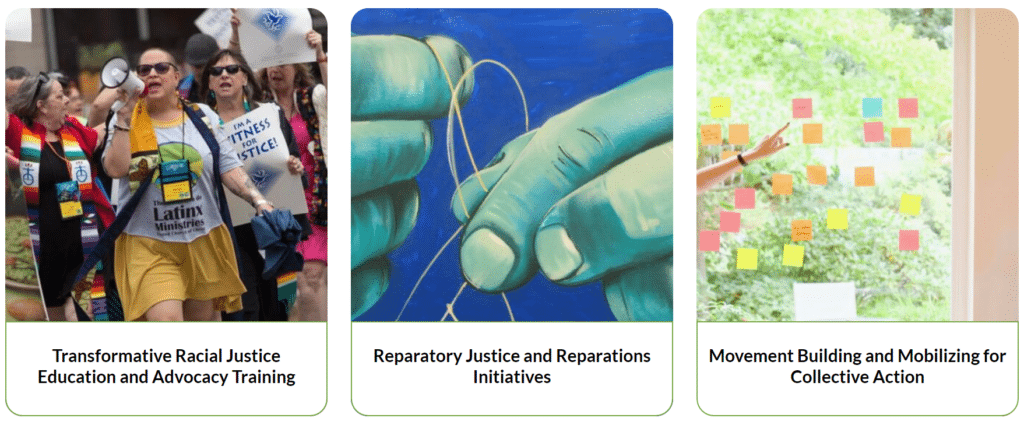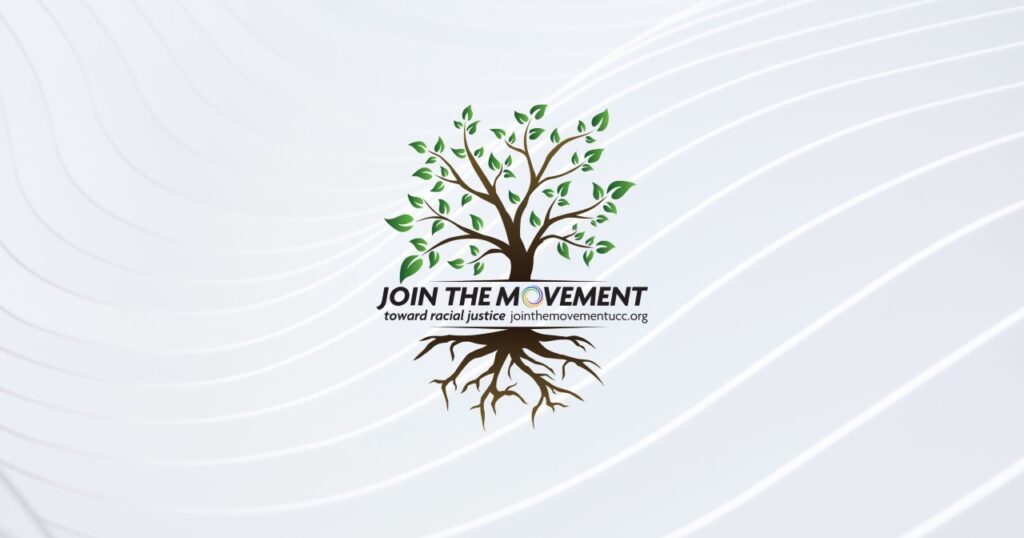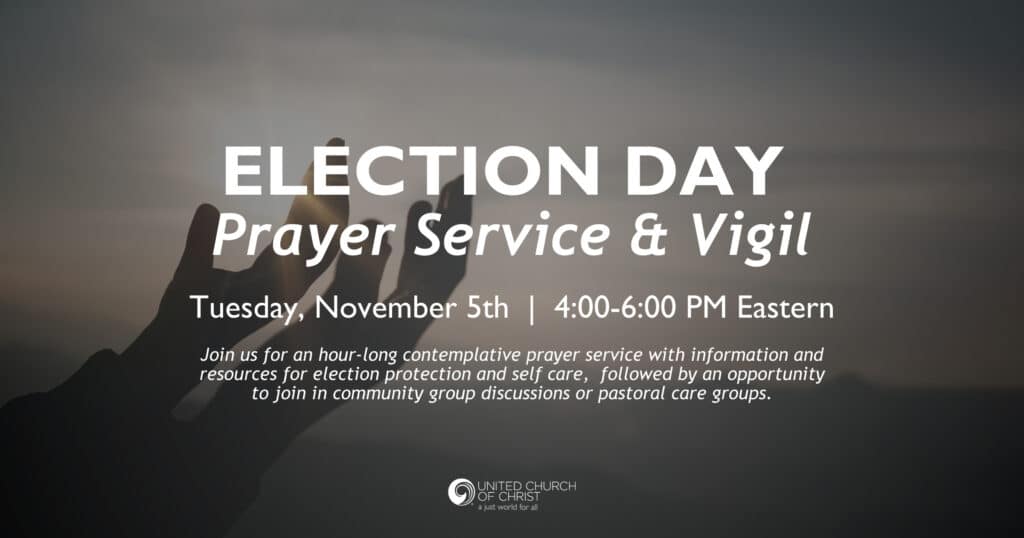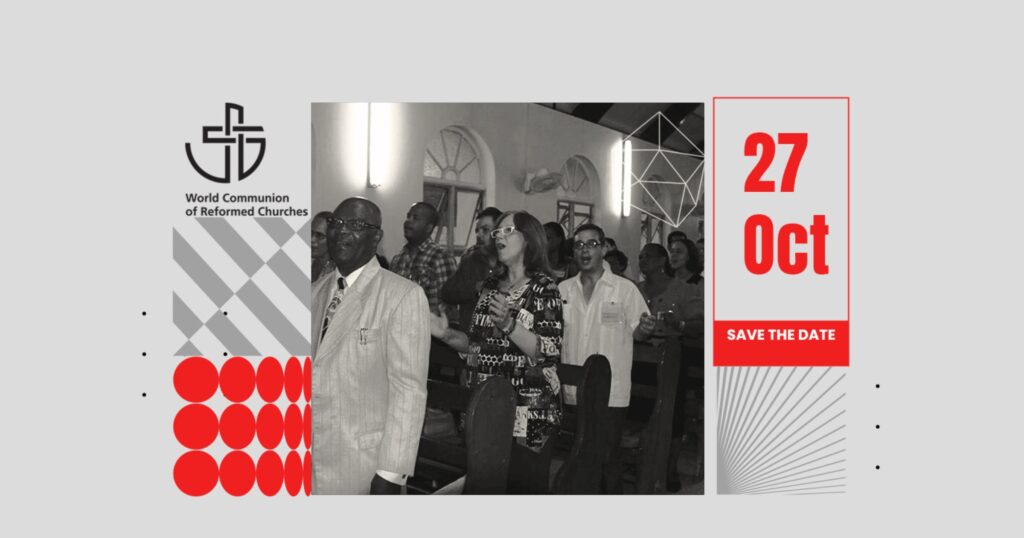Join the Movement urges support for racial justice now and for future generations
When a group gathered for a Join the Movement toward Racial Justice workshop during July’s General Synod, attendees were invited to sit in circles and share their stories with each other.
“It was amazing to see what kind of energy and spirit was engendered by the simple act of folks sharing with each other where they were wrestling and where they were experiencing delight,” said Sharon Fennema, curator and storyteller for Join the Movement. She noted that it continually surprises her to witness the depth of connection people create when sharing stories.
“It brought home to me how powerful storytelling is for this work,” she said. “Storytelling is at the heart of the spiritual sacredness and the practical antiracism practices of Join the Movement.”
Join the Movement toward Racial Justice is a United Church of Christ initiative that aims to demonstrate God’s love and partner with others working to transform racism in our world to foster flourishing lives for all. It has offered curated antiracism spiritual practices, an all-church read and conversations with prophetic leaders, among the many resources shared.
Now, Join the Movement is seeking support for its ongoing capital campaign to expand this valuable programming and make it sustainable far into the future.
A goal of $4 million
The capital campaign, which launched a year ago, has raised $675,000 towards a goal of $4 million.
The campaign calls for people and congregations to become changemakers by participating in the work and securing its future through financial gifts. Half the money raised will support current work in racial justice ministries, and the other half will go into an endowment to ensure the work of racial justice ministries for future generations.
“I want to partner with you and assist you during your journey toward racial justice,” said the Rev. Velda Love, UCC minister of racial justice and JTM lead. “Since the launch in 2022, we have witnessed the impact as stories from clergy and lay leaders touch hearts and spirits and inspire others to widen and deepen partnerships across the denomination and beyond — conferences, regionally and globally.”

‘Building collective capacity’
Fennema has heard stories from people across the church about how Join the Movement has helped them feel part of a broader, collective voice. This is something Fennema and Love aim to develop further heading into 2024.
“People are getting a sense that they’re not alone in this work and that they have connections to other folks who are also working in their respective contexts,” Fennema said. “There’s a sense of building collective capacity, and that will be the focus of where we’re going in 2024 — really intentionally building that network and giving people chances to connect with other folks.”
Upcoming plans include a webinar and resource series on Decolonizing Antiracism, a 2023 Abolition Advent Calendar and a virtual celebration culminating the All Church Read of Ibram X. Kendi’s book “How to be an Antiracist.”
Love and Fennema have big plans for investing in local communities in 2024 with in-person listening tours and regional virtual movement-maker gatherings.
‘For generations to come’
The sustainability of their efforts to engage and activate local churches in antiracism work relies on local church support, said Kent Siladi, UCC director of philanthropy.
“We are so grateful for the important ministries of the local church, and we firmly believe that racial justice work can be carried out in every local community in which our churches reside,” he said. “The impact that a local church can make is substantial and that is why we believe that every local church will want to Join the Movement!”

UCC congregations should be on the lookout for mailed invitations from the capital campaign team to get involved and contribute financially. The mailing includes a list of creative ways to engage entire congregations, such as hosting watch parties for Join the Movement events or learning the history of a congregation’s relationship to legacies of slavery, racism and genocide and making a gift in honor of the congregation’s justice work in response to those histories.
First UCC in Washington, D.C., did just that — investing in exploring the complexities of the congregation’s involvement with both segregation and abolition — and their story is available on the Join the Movement website.
“The campaign is important for addressing racial justice right now and for generations to come,” said Siladi. “The legacy component of this campaign will ensure that our children and our children’s children will have a church that recognizes that racial justice work is part and parcel of the Gospel call to love our siblings without reservation.”
Gifts to Join the Movement can be made online or by texting MVMT to 41444. Information on making a pledge, stock or planned gift can also be found on the online donation page.
Content on ucc.org is copyrighted by the National Setting of the United Church of Christ and may be only shared according to the guidelines outlined here.
Related News
UCC to offer Election Day Prayer Service and Vigil
On Election Day, Nov. 5, join the Rev. Karen Georgia A. Thompson together with United Church...
Read MoreGoing beyond the blessing: Churches emulate St. Francis’ care for animals
https://www.youtube.com/watch?v=lu3LYwhLxCo UCC News presents a video news story on the...
Read MoreUCC leaders invite all to global celebration of Reformation Sunday
This Reformation Sunday, leaders from the United Church of Christ will participate in a global...
Read More


